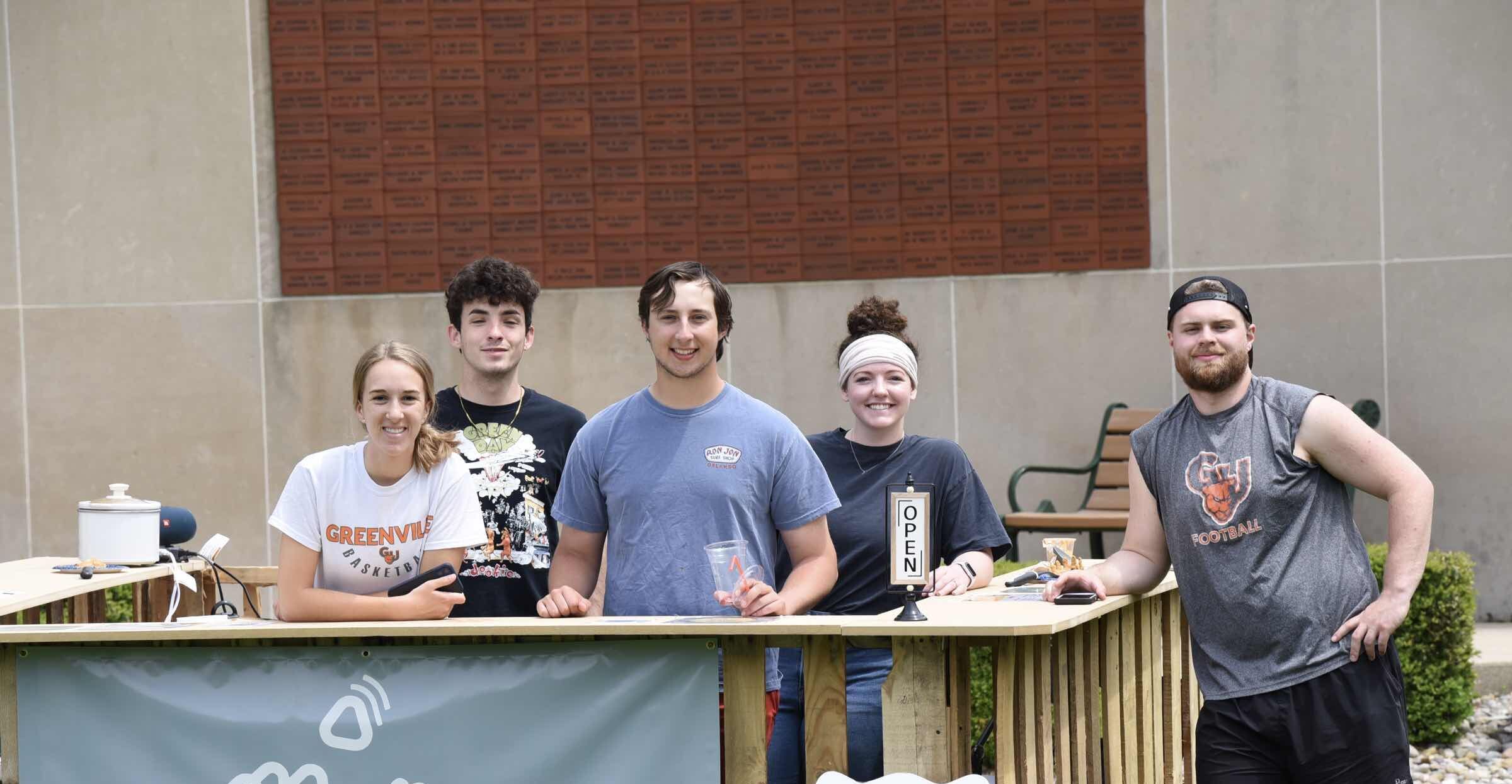It’s simple. Here you learn by doing.
Experience matters.
We know it.
"Tell me, and I forget, teach me and I may remember, involve me, and I will learn"
– Benjamin Franklin, 1750.
At GU, we use experiential learning to help each student succeed academically, develop skills, and thrive in college and in life. We develop lasting experiences in and out of the classroom that engage students in direct, hands-on learning and focused reflection to increase knowledge, develop skills, and clarify values. Thus, we empower graduates for lives of character and service.

Why Experiential Learning?
- Students better grasp concepts
- Students have the opportunity to be more creative
- Students have the opportunity to reflect
- Students’ mistakes become valuable experiences
- Experiential learning cultivates leadership, character, and the ability to work with others.
- Teachers often observe improved attitudes toward learning
GU’s experiential learning methodology
The pedagogical methods for Experience First focus on the HOW of learning and teaching, not the what. Derived from David Kolb’s Experiential learning theory and Anders Ericsson’s theory of Deliberate practice, these theoretical frameworks, when combined, clearly paint faculty as engaged facilitators and coaches.
- Teachers intentionally design sequential coursework that allows expertise to be mastered over time.
- Each sequential task requires students to perform just beyond their comfort level initially.
As a coach, the instructor guides students through a progression of Kolb’s experiential learning cycle (experience observation, conceptualism, and experimentation) and provides immediate and formative feedback on the student’s performance. The engaged student makes necessary adjustments based on the teacher’s feedback and participates in deliberate practice until mastery is achieved.
The use of immediate formative feedback not only allows students to jump in at any stage in the cycle but allows instructors easily individualize varied learning styles represented in their classroom.
Once a student has mastered each task and skill, the faculty retreats to observe as a student continues practicing the newly formed skill independently and then provides summative feedback.
GU's experiential learning faculty
An experiential learning faculty encourages students to take center stage in coursework that provides real-life experiences and character development and to focus on the importance of reflection, which serves to create a passion for lifelong learning and character development.
GU's experiential learning spaces
Each classroom: the space, the furniture, and the colors communicate to students how they are expected to behave and what kind of work is done in that space. An entire discipline, the psychology of design, is dedicated to this.
In This Section

Experience First
Need to prepare a student for the workforce? Give them experience...first.

Experience Hub
The Experience Institute aligns physical space with strategy and mission through the Student Experience Hub and the Experience Learning Lab. The Student Experience Hub is focused on one thing. Serving students.

Capstone Courses
A capstone course allows our students to demonstrate expertise in their major or area of study.

Partnership Inquiries
Are you a business with a workplace challenge or an organization with a missional challenge? GU seeks off-campus enterprises where students team up with business owners, ministries, and service organizations.

